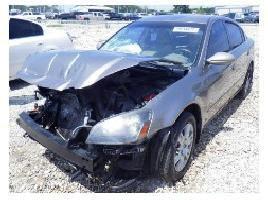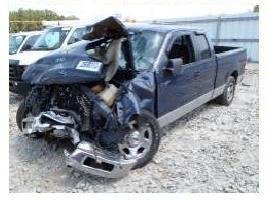Ask an Attorney a Question for FREE!
Loss of Earning Capacity
Usually you need a documented permanent injury to make this claim
Loss of Earning Capacity is a type of claim that can be made when a bodily injury exists. This type of claim is always made when there is some sort of permanent injury. Also, it is typically made when there is an injury that obviously hurts your ability to work in your current profession.

If you work in an office and you type files, but due to the accident your production is less, then you are more likely losing the ability to be promoted or to continue your occupation.
If you lose your ability to “do the same thing” or the ability to advance doing what you are doing, then you will have a valid loss of earning capacity claim. A teacher could have a successful loss of earning capacity claim if her voice was damaged due to the accident.
If you are modeling and your face has a permanent scar because of the accident, then you are probably less likely to be hired because of this permanent injury. It does not matter whether the scar was painful. It is the scar’s ability to hurt someone’s employment, that is the issue.
If I am a typist and I have a scar on my face because of the accident, then the Loss of Earning Capacity Claim will fail because the injury is not causally related to the ultimate damage (me typing slower).
What does having a scar on my face have to do with my productivity in typing? Not much.
Loss of Earning Capacity is a very hard claim to make. It requires skill and you probably should hire an attorney to make a successful claim.

The main reason for this is because you will have two options. The first is you may hire a highly trained professional like an economist to evaluate the present value of your loss of earning capacity (with highly complex mathematical formulas that take into account several variables like age, gender, inflation, etc).
These professionals will probably end up in front of a jury defending their calculations. The second option is that you allow the insurance company to retrain you in another field that would pay you about the same as your current salary.
Both options above have many complications. The first one will be highly disputed and would be dragged through the courts with a lot of legal expenses. And the second one makes you go to school and learn something else you might not be in love with.
Many times there is a third solution to the loss of earning capacity claim. Again, it is not a very good solution but it is important to discuss it here because of its implications. That third option is surgery.

Going under the knife is sometimes an easy choice. But most of the time, I would say it is a difficult one.
The pain of the surgery and the recovery time alone can discourage someone from doing it.
Also, if the surgery can cause other problems or the side effects are significant, it could discourage someone completely from taking the risk.
Insurance adjusters will tell the unrepresented claimant and the untrained attorney that this a mitigation of damages issue (you must do everything to avoid a bigger loss). However, in reality this is an avoidable consequence.
In this case, the plaintiff (the person suing) cannot recover for damages that she/he could have avoided through reasonable conduct. However, “reasonable conduct” is decided by the jury.
For example, if someone’s religion forbids blood transfusions and that person medically requires a blood transfusion (due to the accident) then what? Should the defendant’s insurance company pay for damages as if the blood transfusion was not available; or should the defendant’s carrier pay for the value of the injury minus whatever medical benefits the transfusion would have had?
Both answers will be left to a jury! But again, surgery can be a “solution” to a loss of earnings claim. Make sure you contact an attorney and discuss the pros and cons of this type of claim. Consult one by filling out the form below. It's free.
|
|
Follow the links below for more information about accident injuries, bodily injury claims, and what to ask when making this type of claim.
1. Who can make a bodily injury claim
2. Reserving your bodily injury claim
3. Soft Tissue Claim Part I
4. Permanent Injury Claim
5. Medical bills, medicine, expenses
6. Loss of Wages
7. Loss of Earning Capacity
8. Loss of Business Income
9. Loss of Consortium
10. Loss of Quality of Life
11. Loss of Essential Services
12. Future Treatment and Expenses
13. Pain and Suffering
14. Prior Injuries
15. Psychological Injuries
16. Personal Injury Claim Settlement (evaluation of a claim)
17. Car Accident Injury Claim and Burden of Proof
18. What affects compensation for back and other injury claims
19. A word about Head Injuries
Making a Personal Injury Claim: Steps 1 to 5
Making a Personal Injury Claim: Steps 6 to 10
Pain and Suffering Reimbursement
Damages Calculation
Injury Demand Letter - How to write one
When to write an Injury Settlement Demand Letter
The Actual Injury Demand Letter (Format)
Find a Qualified Attorney in Your City
|
For a Free Review of Your Case
Please Call (866) 878-2432 |


